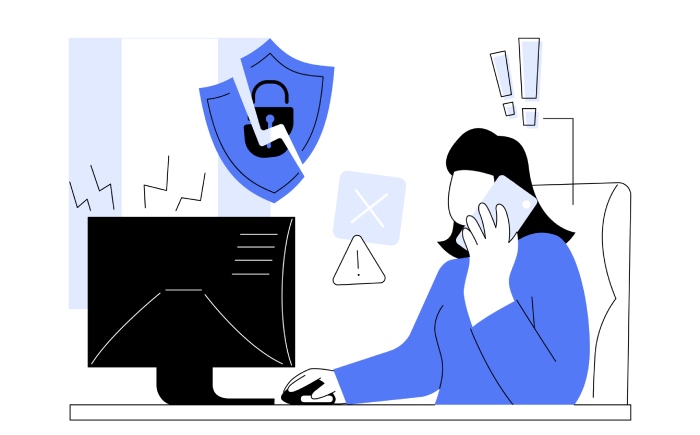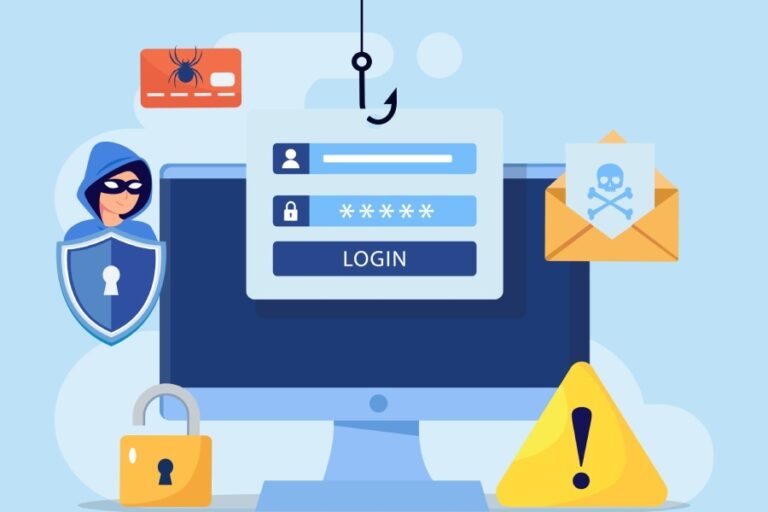Everything you should know about the recent ban on Kaspersky Antivirus in the US

It is a common understanding that cybersecurity is only about protecting your systems and data from the prying eyes of malicious attackers, but in reality, its implications go way beyond this and can even put national security at stake. As far-fetched as it may sound, this is indeed true, and a testament to this is the recent ban on the Russian antivirus company— Kaspersky by the US administration.
Recently, the Biden government levied a ban on the sales and distribution of Kaspersky antivirus products, stating the risk of the Russian government potentially using the company’s access to harvest sensitive information from US systems.
The Department of Commerce also issued a statement regarding this ban, reiterating their apprehension, which said, “Kaspersky will generally no longer be able to, among other activities, sell its software within the United States or provide updates to software already in use.”
Given that the stakes are so high, the authorities have given the company and its users a deadline of 29 September 2024 to completely stop the distribution and usage of the software in the United States.
Let us dig deeper into this ban and understand what it means for the users.
The reason behind the ban
By now, it is clear that the primary reason behind the ban was the perceived threat to national security. It is crucial to understand that the fear did not emerge out of nowhere; it was, in fact, a series of escalating concerns that led the administration to take such a radical step.
In 2017, the US Department of Homeland Security (DHS) directed federal agencies to remove Kaspersky’s antivirus software from their systems. This move was based on concerns that the software could potentially give the Russian government access to spy on US operations or carry out cyberattacks. Although the cybersecurity company dismissed these allegations, the DHS’s suspicion remained strong, which ultimately led to the prohibition of Kaspersky products throughout the United States.
The following reasons necessitated the ban of Kaspersky antivirus software by the US government:
- Kaspersky falls under the jurisdiction, control, or influence of the Russian government, and given that the United States and Russia are at odds with each other, this raises significant security concerns for the US.
- Their software is vulnerable and can be exploited to identify and extract sensitive US personal data, putting it at risk of being used by Russian threat actors.
- Since the Kaspersky antivirus software is developed and supplied from Russia, it can install harmful software on your system and delay updates for new malware threats.

It is worth noting that, this ban was not unexpected, especially given the bilateral relations between the two nations and the precedent set in 2017 when the U.S. first took steps to restrict Kaspersky’s software on federal systems.
The implications of the ban on customers
If your organization is still using Kaspersky antivirus software, it is important to understand that the starting point of the breach is your organization. That is to say, it is as much about your organization’s security as it is about the nation’s.
Here’s how the recent ban will impact you:
You will no longer receive updates
With the ban in effect, Kaspersky can no longer sell its products in the US nor provide updates for existing installations. This means, it will leave your current antivirus software without new updates and make you more vulnerable to new cyber threats.
You might face data sovereignty issues
If your organization handles sensitive information, the ban would raise concerns about where and how your data is stored and processed. Given the company’s ties with foreign governments, there would be a perpetual fear of your data being accessed or manipulated without permission.

Your intellectual property might be at risk
Intellectual property is an asset of your company, and protecting it should be your top priority. However, with Kaspersky antivirus, be prepared for your systems to become more susceptible to new cyber threats, which can inevitably put your intellectual property at risk of theft or damage.
You might encounter system compatibility issues
As your Kaspersky antivirus becomes outdated, you might face compatibility issues with newer systems and software, which might eventually lead to operational inefficiency that further exposes your IT infrastructure to other vulnerabilities.
The way forward
If you’re still using Kaspersky antivirus software, this is your sign to start exploring alternative options. Although you do have almost 100 days to transition, when it comes to cyber and national security, the sooner, the better!
In fact, while you’re looking for a replacement, you should consider upgrading your cybersecurity strategy by incorporating email authentication protocols like Domain-based Message Authentication, Reporting & Conformance (DMARC). This protocol will protect your email systems from phishing and spoofing attacks and improve email deliverability.
Want to learn more about fortifying your defenses? Book a demo with us today!







